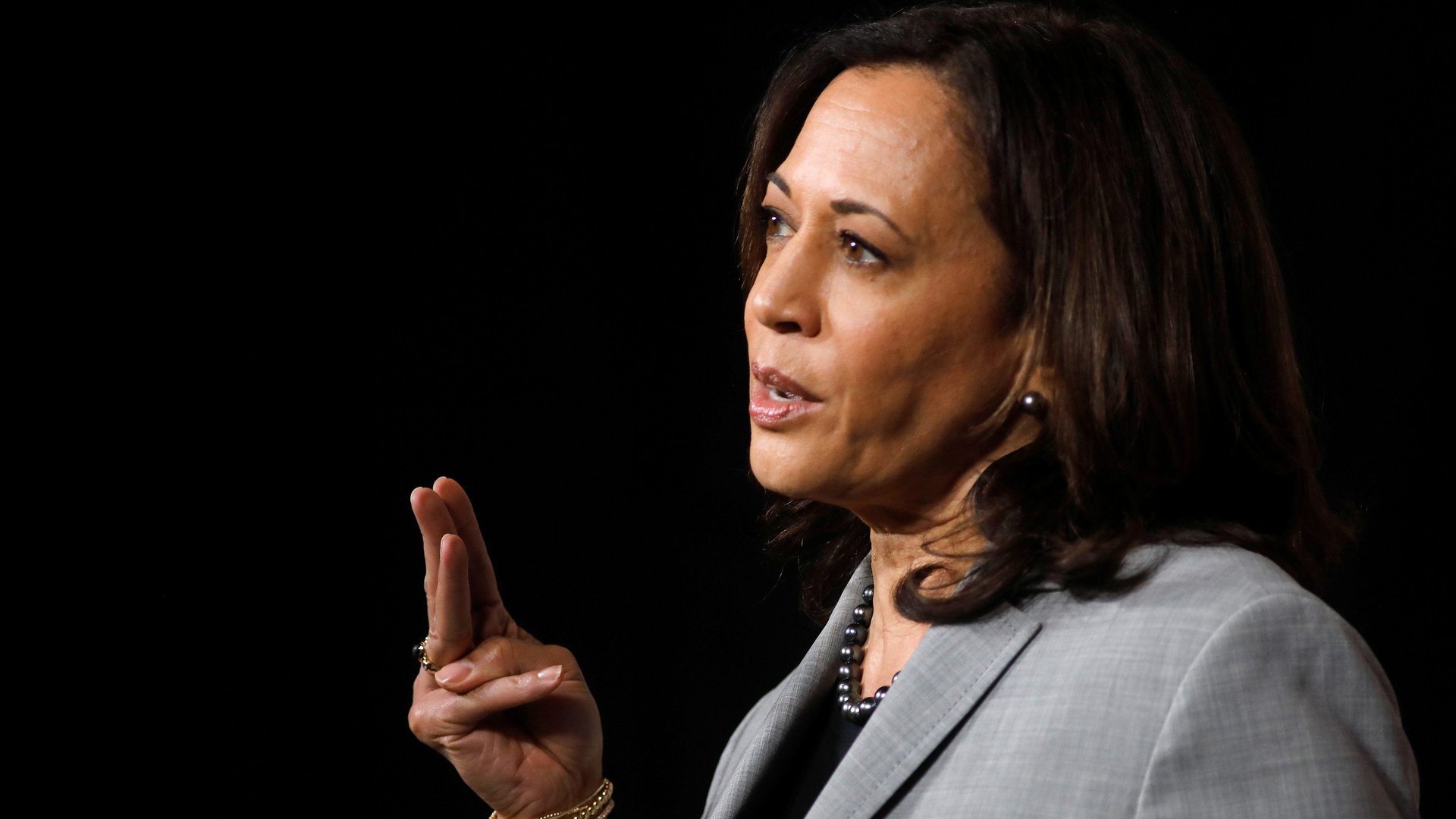Kamala Harris should boost the ratings of this year’s vice presidential debate
US vice presidential debates are often an afterthought, sandwiched between the first and second presidential debates at a time when voters would rather hear directly from the main candidates. But this year’s event between Mike Pence and Kamala Harris could be more momentous than normal.


US vice presidential debates are often an afterthought, sandwiched between the first and second presidential debates at a time when voters would rather hear directly from the main candidates. But this year’s event between Mike Pence and Kamala Harris could be more momentous than normal.
Since 1984, when Nielsen started tracking TV ratings for the vice presidential debates, they’ve garnered modest audiences, relative to their presidential counterparts. After the first 2016 debate between Donald Trump and Hillary Clinton reached a record 84 million viewers, the vice presidential debate between Pence and Tim Kaine was watched by fewer than half of that (37 million). Ratings for the last two VP debates have dropped significantly after they rose every election from 1996 until 2008.
Pence and Harris will face off Oct. 7 in Salt Lake City at 9pm US eastern time on a variety of TV networks. USA Today journalist Susan Page will moderate.
Though the sample is small, there is evidence to suggest women vice presidential candidates draw bigger TV audiences. The 2008 debate between Joe Biden (then Barack Obama’s running mate) and Sarah Palin drew 69.9 million viewers—the most ever for a vice presidential debate, and more than any of the three presidential debates that year between Obama and John McCain. The 1984 debate between George H.W. Bush and Geraldine Ferraro—the first to feature a woman candidate—remains the second most-watched VP debate of all time, with 56.7 million US viewers.
Harris has already demonstrated she is a skilled debater, whose prosecutorial instincts have made for several viral moments during both the 2020 Democratic primary debates and also her time on the US senate judiciary committee. Democrats have long been excited to watch Harris “prosecute the case” against Trump and Pence on the debate stage.
Pence, meanwhile, is unlikely to be as disruptive or openly demeaning as Trump was at the first presidential debate. While it will no doubt be contentious, it may resemble an actual debate—perhaps pleasing to viewers who turned off the first Trump-Biden debate due to its chaotic nature. And on top of that, the vice presidential debate has extra importance this year, given Trump’s precarious health and Biden’s age.
That all assumes there will be a vice presidential debate at all. Many observers have called for the debate to be canceled—or at least postponed—given the Covid-19 outbreak among White House staffers. Trump was diagnosed with the disease last week, while several other Republican senators and advisers have since tested positive as well.
Pence has tested negative twice since Trump’s diagnosis. (Harris also tested negative.) But given Pence’s proximity to those who did test positive—and the fact that it’s possible Pence could have the virus and still test negative for a number of days after exposure—there are serious concerns about putting Harris on stage next to the vice president.
For now, the debate is going on as scheduled. Pence and Harris will be seated, rather than standing, and 12 feet apart (as opposed to the seven feet of distance as originally planned). It would also be the last debate of the election if the two remaining presidential debates—tentatively scheduled for Oct. 15 and 22, pending Trump’s illness—are canceled.